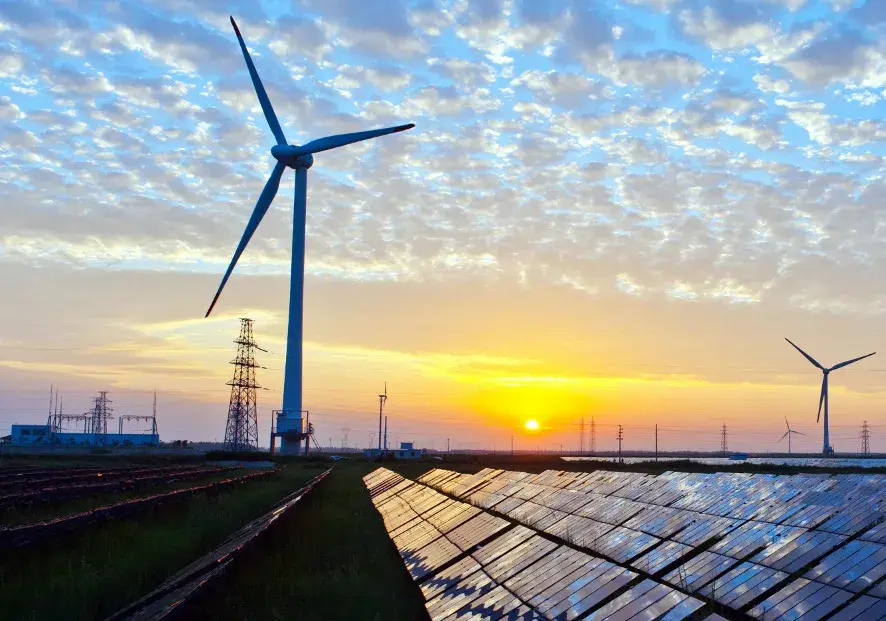Renewable energy has soared to new heights, with wind power claiming center stage in the European Union’s power generation landscape.

In a historic shift, wind power outpaced fossil gas as the primary source of electricity in Europe for the first time in 2023, according to the latest annual report from Ember, a think tank specializing in clean energy.
The report reveals positive trends in the European Union’s (EU) energy transition, highlighting a record-breaking 27% share of electricity generation from wind and solar. Coal and gas experienced a significant decline, with coal reaching its lowest-ever level at just 12% of the EU’s electricity production.
Ember’s Europe Programme Director, Sarah Brown, emphasized the diminishing relevance of fossil fuels in the EU’s power sector as it undergoes a substantial transformation.
The shift towards wind and solar as primary sources is becoming more pronounced, marking a pivotal moment in the region’s energy landscape. The decline in coal and gas generation is attributed in part to lower electricity demand amid the ongoing energy crisis.
The EU has committed to a 90% reduction in greenhouse gas emissions by 2040, underscoring the importance of renewable energy in achieving this goal. The report outlines the changes in the EU’s electricity mix in 2023, with wind generation increasing by 13%, constituting 18% of the EU’s power mix – equivalent to the total electricity demand of France. Gas, on the other hand, provided 17%, while solar contributed 9% to EU electricity.
Renewables, including hydro power, reached a record 44% share of EU power in 2023. Noteworthy achievements in wind power were observed, with Denmark leading the way at 58% of electricity from wind, Germany producing the highest wind power at 141 TWh, and Sweden leading in per capita wind power generation. Germany experienced the most significant increase in wind generation, followed by France and the Netherlands.
Pieter de Pous from the E3G think tank acknowledged the EU’s commitment to phasing out fossil fuels, citing the 2023 power market data as evidence of substantial progress toward a fossil fuel-free power system. Coal generation plummeted by a record 26%, with a 15% decrease in gas – the largest annual drop since at least 1990.
Despite these positive trends, energy experts caution that the transition is not yet complete. The EU’s REPowerEU plan aims for 55% of electricity to come from wind and solar by 2030, nearly doubling the current share of 27%. Solar generation increased, but the year-on-year growth was 25% lower than in 2022. Wind’s growth rate is also falling behind the necessary 15% annual target to achieve the 2030 goal.
Martin Hojsík, MEP and Vice President of the European Parliament, highlighted disparities among EU countries, with some leading in renewable deployment while others lag behind, particularly in Central and Eastern Europe. The urgency to switch to clean power is emphasized not only for climate goals but also to enhance security by reducing dependence on imported fossil fuels.
Renewables alone are insufficient to meet climate goals; system-wide enablers such as grids and energy storage are crucial. The European Commission’s new target of cutting greenhouse gas emissions by 90% by 2040, aiming for climate neutrality by 2050, has received praise from renewable energy experts. The target, though ambitious, awaits confirmation from EU lawmakers and won’t become legally binding until after the European Parliament elections in June.
Elisabeth Cremona, an energy and climate data analyst at Ember, stressed the need for decisive action to decarbonize the power sector, emphasizing the urgency of moving away from fossil fuel infrastructure. Walburga Hemetsberger, CEO of SolarPower Europe, expressed full support for the 90% emissions reduction scenario, emphasizing the importance of scaling up funding for renewables.
However, climate justice groups, including Friends of the Earth Europe, argue that the proposed emissions cuts are insufficient, urging Europe to set a deadline for fossil fuel dependence well before 2050. They emphasize the need to stop appeasing the fossil fuel industry with loopholes and tricks like carbon capture storage.







